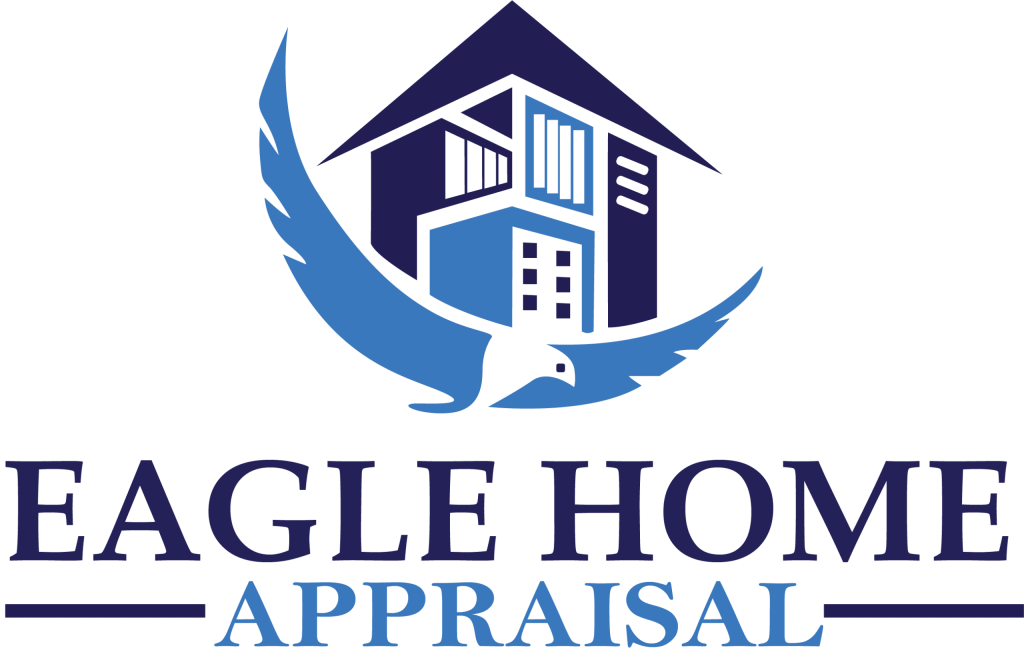What Happens If an Appraisal Is Lower Than an Offer?
 In the world of real estate, few situations create as much tension as a real estate appraisal that comes in lower than the agreed-upon purchase price. Whether you’re a buyer hoping to close on your dream home or a seller expecting to move on with equity in hand, a low appraisal can disrupt even the most promising transaction.
In the world of real estate, few situations create as much tension as a real estate appraisal that comes in lower than the agreed-upon purchase price. Whether you’re a buyer hoping to close on your dream home or a seller expecting to move on with equity in hand, a low appraisal can disrupt even the most promising transaction.
So what happens next when an appraisal doesn’t match the offer? What are your options, and how can you move forward without losing the deal—or your financial footing?
In this article, we’ll walk through why low appraisals happen, how they impact the buyer, seller, and lender, and what strategies can help salvage the deal.
Understanding the Appraisal Gap
An appraisal gap occurs when the appraised value of a home is less than the contract price agreed upon by the buyer and seller. For example, if a buyer agrees to purchase a home for $450,000, but the appraisal comes back at $420,000, there’s a $30,000 gap.
Since lenders base their loan approval on the lower of the purchase price or appraised value, this discrepancy can trigger problems:
- The lender may only approve a loan for $420,000.
- The buyer is left to cover the $30,000 difference out of pocket—or renegotiate.
- The seller might have to drop the price to keep the deal alive.
Why Would an Appraisal Be Lower Than the Offer?
Several factors can lead to a low real estate appraisal:
1. An Overheated Market
In a competitive market, buyers often offer more than asking to beat the competition. Appraisers, however, rely on past sales—not bidding wars—to establish value.
2. Lack of Comparable Sales (Comps)
If there are few recent sales of similar properties nearby, appraisers may struggle to justify a high contract price.
3. Unique Property Features
Homes with unusual layouts, luxury features, or non-standard improvements may not be easily comparable, leading to a conservative valuation.
4. Outdated or Poor Property Condition
If the appraiser finds hidden flaws or deferred maintenance during the inspection, it may affect the appraised value—even if the buyer was still willing to pay more.
5. Errors or Inconsistencies
Sometimes the appraiser may overlook upgrades or use inappropriate comps. These human errors can result in an appraisal that doesn’t accurately reflect the property’s worth.
How a Low Appraisal Affects Each Party
🧑💼 The Buyer
Buyers must decide whether to:
- Pay the difference between the appraised value and the offer price in cash
- Ask the seller to lower the price
- Renegotiate the contract terms
- Walk away if there’s an appraisal contingency in the contract
A low appraisal can also affect mortgage terms. If the loan-to-value (LTV) ratio increases due to a lower valuation, the buyer may be required to pay private mortgage insurance (PMI) or face a higher interest rate.
🏠 The Seller
For sellers, a low appraisal often means rethinking expectations. They can:
- Agree to reduce the price
- Split the difference with the buyer
- Request a second appraisal
- Relist the home and hope for a higher appraisal from another buyer
It’s a difficult decision, especially if the seller needs a specific amount from the sale to fund their next move.
💼 The Lender
The lender uses the appraisal to determine how much they’re willing to finance. If the home isn’t worth the offer amount, the lender won’t increase the loan amount to make up the difference. Their primary concern is minimizing risk in case of foreclosure or default.
Buyer Options When Facing a Low Appraisal
Here’s a closer look at what buyers can do when confronted with an appraisal shortfall.
1. Bring Cash to Close the Gap
The most straightforward (but not always feasible) solution is for the buyer to pay the difference between the loan amount and the purchase price in cash. This maintains the agreed price and satisfies the lender’s requirements.
Example:
Purchase Price: $450,000
Appraised Value: $420,000
Loan Approved: 80% of $420,000 = $336,000
Buyer’s Responsibility:
- $84,000 down payment
- $30,000 appraisal gap in cash
Total Out of Pocket: $114,000
2. Renegotiate with the Seller
Buyers can ask the seller to reduce the price to match the appraisal. In a buyer’s market or with a motivated seller, this may be successful.
3. Split the Difference
Often, buyer and seller agree to meet halfway. The seller lowers the price slightly, and the buyer brings some additional cash to the table.
4. Dispute the Appraisal
If the buyer believes the appraisal is incorrect, they can ask the lender to reconsider the value. This requires submitting:
- Additional comps
- A list of overlooked features or upgrades
- A second opinion from another appraiser, if available
5. Walk Away
If the contract includes an appraisal contingency, the buyer can exit the deal without penalty if the appraisal is too low. This protects the buyer from overpaying and losing earnest money.
Seller Strategies for Low Appraisals
Sellers also have several options when faced with an appraisal gap:
1. Lower the Price
If the seller is eager to close, they may agree to reduce the sale price to match the appraised value. This keeps the deal intact but cuts into potential profits.
2. Ask the Buyer to Waive the Appraisal Contingency
Some buyers may choose to waive the contingency and move forward regardless of the appraisal—particularly in hot markets.
3. Challenge the Appraisal
Like buyers, sellers can also work with the buyer’s agent to submit an appeal. This is more common when the appraiser missed key information or used flawed comps.
4. Relist the Property
In some cases, the seller may prefer to terminate the deal and relist the property, hoping for a higher appraisal or a cash buyer not relying on a loan.
How to Prevent a Low Appraisal
While not every appraisal issue is preventable, there are proactive steps that can reduce the risk:
✅ Prepare the Property
Clean, repair, and stage the home before the appraisal. Make sure it shows well and is free of visible defects.
✅ Highlight Improvements
Provide a list of upgrades and renovations with receipts, dates, and permits (if applicable). This helps justify a higher valuation.
✅ Be Present (But Not Pushy)
Allow access and be available to answer questions. Share helpful info but don’t hover or pressure the appraiser.
✅ Choose the Right Agent
Work with an experienced real estate agent who understands local market conditions and can recommend an accurate listing price to begin with.
What Is an Appraisal Contingency?
An appraisal contingency is a clause in the purchase contract that protects the buyer if the appraisal comes in low. It allows them to:
- Renegotiate the deal
- Cancel the contract without penalty
- Recover their earnest money
Buyers in competitive markets may waive this contingency to strengthen their offer—but doing so increases risk.
How a Re-Appraisal or Second Opinion Works
If you strongly disagree with the appraisal, you can request a second appraisal, especially if:
- The first appraiser was unfamiliar with the neighborhood
- There were factual errors in the report
- Key improvements or features were ignored
Lenders are not required to order a second appraisal unless justified, so be prepared with documentation and compelling reasoning.
Long-Term Implications of Low Appraisals
Even if the deal closes, a low appraisal may have lingering effects:
- Higher out-of-pocket costs for the buyer
- Reduced loan-to-value ratios, leading to PMI or higher interest rates
- Delays in closing as negotiations play out
- Appraisal report becomes part of the property’s record, influencing future valuations
For these reasons, it’s important to handle the situation strategically rather than emotionally.
Conclusion
A real estate appraisal lower than the offer doesn’t have to spell disaster, but it does require careful navigation. Whether you’re the buyer or the seller, understanding your options—from renegotiation to dispute, from splitting the gap to walking away—can help you make the best decision for your goals.
Low appraisals are more common than you might think, especially in fast-moving markets. But with the right information, a clear strategy, and open communication, many deals can still be salvaged.
Coming Up Next:
Want to know how long this whole process takes? Our next blog dives into how long a house appraisal takes and what to expect before, during, and after the visit.
Divorce Appraisals
At Eagle Home Appraisal Gilbert, we specialize in providing expert divorce appraiser services, offering expert witness testimony when necessary.
Estate & Trust Appraisals
At Eagle Home Appraisal Gilbert, we offer a comprehensive range of professional estate appraisal services to facilitate estate and trust planning.
IRS & Tax Appraisals
At Eagle Home Appraisal Gilbert, we specialize in providing professional IRS tax appraisal services to minimize capital gains on inherited property.
Real Estate Appraisal
Eagle Home Appraisal is a group of independent fee appraisers committed to delivering competent, credible, and reliable appraisal reports.
Eagle Home Appraisal Services Near Me
Comprehensive Property Appraisals
Expert Witness Testimony
Fair Market Value Assessments
Rapid Turnaround Times
Customized Solutions
Contact Eagle Home Appraisal Today
For more information about our services, get in touch with Eagle Home Appraisal. Our team is dedicated to providing the best customer service, ensuring all your appraisal needs are met with professionalism and expertise. Contact us today to learn more about how we can assist you.
Get A Free Consultation

copyright @2025 all rights reserved | Privacy-policy





